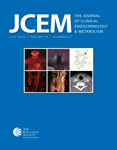.webp.6e9a9b2459d23f2048dba810e91f3da3.webp)
Celiac.com 05/02/2011 - David van Heel, gastrointestinal genetics professor at Barts and The London School of Medicine and Dentistry, has shown the world the progress that's possible by researching celiac disease after he headed a group of researchers from around the world who studied the genetic maps of more than 9,400 celiacs. Van Heel's research will surely be followed by other studies, which may possible lead to improved ways of diagnosing and treating the autoimmune disease.
As an author, researcher, and gluten-free advocate, I have been raising awareness for celiac disease because I know that with increased awareness will come more research, better diagnoses, and better treatment. Illustrating this point is the fact that van Heel's studies on the genetic links to celiac disease are leading to more research which may lead to new and more effective ways to treat the disease, a prospect which should please celiacs around the globe.
Celiac.com Sponsor (A12):
Celiac disease is caused by an autoimmune reaction to gluten, a protein found in wheat, rye, and barley, affecting approximately 1% of the population and 300 million Americans. The disease attacks the villi, the finger-shaped structures that line the small intestine, leading to stomach troubles and malabsorption of nutrients. When left untreated, celiac disease can cause severe health conditions and complications such as anemia, osteoporosis, miscarriage, and even cancer.
"Substantial" evidence has been found by British researchers that the genes which are connected with celiac disease are also linked to other autoimmune disease such as rheumatoid arthritis. Thus scientists are able to understand how the genetic risk factors for the disease operate by changing the number of immune system genes that cells make. Additionally, it's now understood that there are "hundreds" of genetic risk factors, which means that scientists should be able to "have a good guess at nearly half of the genetic risk at present," van Heel wrote in the Nature Genetics journal, which published his study.
How come only 3% of celiac Americans have been properly diagnosed? Chances are, they or their doctors haven't even heard of the disease. Research on celiac disease in the U.S. depends completely on the generosity of benefactors for its funding. There would be no way to continue this research and the efforts to raise awareness without these charitable donations. Out of the estimated fifty autoimmune diseases that have been discovered by doctors, celiac disease is the only one for which research isn't supported by the U.S. government.
After years of running around in circles with clueless doctors in a quest to find the cause of my painful symptoms, I finally researched my symptoms on my own. Luckily, as a result of my own findings, I've been properly diagnosed, but managing the gluten-free diet is still a challenge. A pill that could offset genetic factors is appealing to many celiacs like myself. Although the treatment for celiac disease is simple, it calls for a lot of work and can be disheartening at times, requiring a total lifestyle change and a lot of time on home-cooking.
With this research into genetic links to celiac disease, we have more studies to look forward to, increased awareness, and possibly other treatment options. In the meantime, it's best to keep doing our parts to raise awareness and funds for research.








Recommended Comments